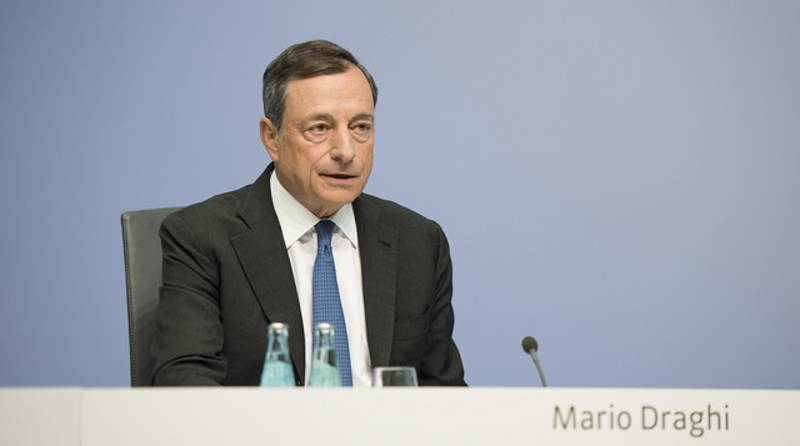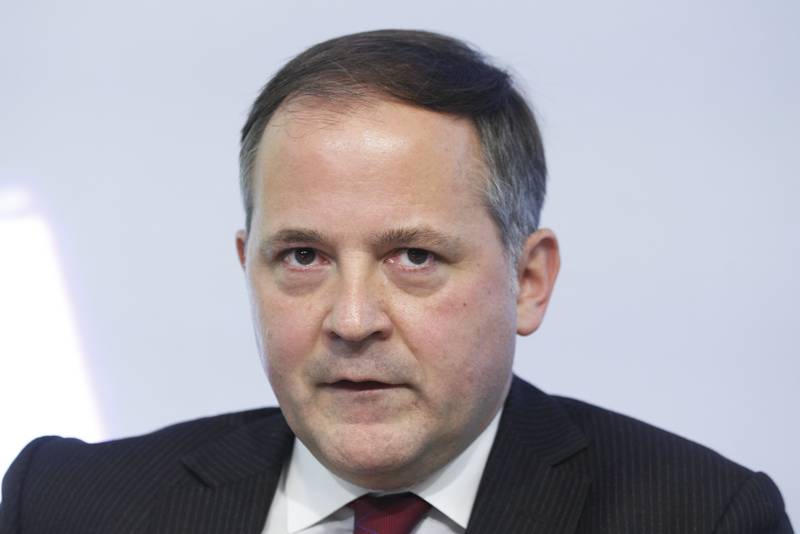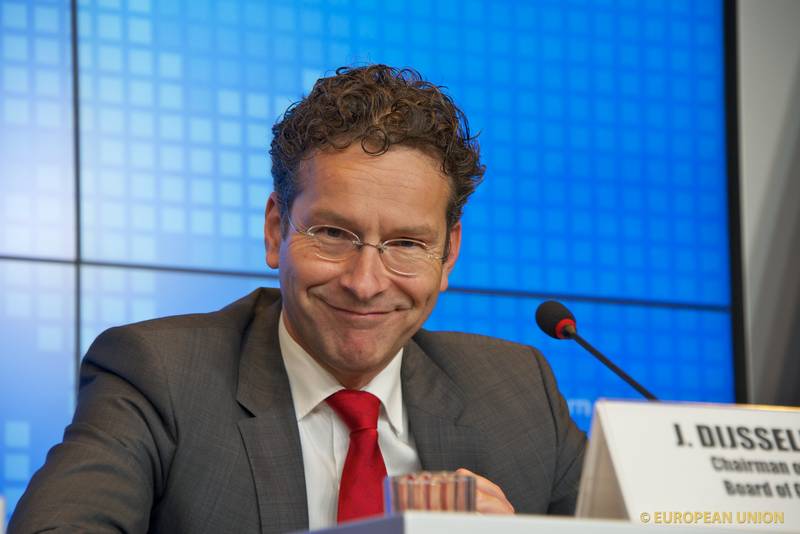Economic Uncertainty Weighs over the Eurozone
Adelina Marini, September 8, 2015
 Economic recovery of the Eurozone has slowed down due to new risks emerging in the last few months, reported European Central Bank boss Mario Draghi last Thursday after the first meeting of the bank’s Governing Council after the summer holidays. The Real Gross Domestic Product of the euro area has grown slower than expected over the second quarter of the year – 0.3%. Recovery will continue, but will be slower than previous forecasts indicated as a result of the slowdown in emerging market economies, which is weighing on global growth and foreign demand for euro area exports, explained Mr Draghi. So far, he noted, the Governing Council judged it premature to conclude on whether these are long-term developments or a short-term instability. Accordingly, he ensured, the Governing Council will closely monitor all relevant incoming information and is ready to use all available instruments if need be.
Economic recovery of the Eurozone has slowed down due to new risks emerging in the last few months, reported European Central Bank boss Mario Draghi last Thursday after the first meeting of the bank’s Governing Council after the summer holidays. The Real Gross Domestic Product of the euro area has grown slower than expected over the second quarter of the year – 0.3%. Recovery will continue, but will be slower than previous forecasts indicated as a result of the slowdown in emerging market economies, which is weighing on global growth and foreign demand for euro area exports, explained Mr Draghi. So far, he noted, the Governing Council judged it premature to conclude on whether these are long-term developments or a short-term instability. Accordingly, he ensured, the Governing Council will closely monitor all relevant incoming information and is ready to use all available instruments if need be.
The ECB’s updated forecast for economic growth in the Eurozone this year is 1.4%. For next year the bank expects a 1.7% economic growth and 1.8% in 2017. The downward revision this year is negligible but it is far more noticeable in the following two years. In June, the bank expected GDP to grow by 1.5% this year, 1.9% next year, and 2.0% in 2017. Despite being cautious in his assessment of what is happening in China, Mario Draghi still predicted that the challenges, provoked by the slowdown in emerging economies, are not too likely to disappear quickly. He did warn, however, that it is too early to predict whether this is a temporary volatility or a permanent one. Mario Draghi reminded that, despite newly looming uncertainty, members of the currency club must stick to their structural reforms programmes and to fiscal discipline.
If the current global economic situation is maintained, it is quite likely the European Commission will also lower its expectations for the EU’s economic growth in its early autumn forecast. This would surely have profound influence on talks in the EU about the future of the Eurozone and maintaining fiscal discipline. At this stage Eurogroup boss Jeroen Dijsselbloem (Netherlands, Socialists and Democrats) does not share Draghi’s pessimism. In a speech in Austria, a day before Mario Draghi, the Dutch finance minister spoke of positive perspectives to the euro area. “Only a year ago the Eurozone was considered a liability to the global economy, now it is one of the stronger regions internationally”, he said in the context of Greece lagging behind its partners in the currency block.
European integration of the Eurozone is gradually dropping off the agenda
Intense preparations are already underway for the new political season in the EU. In order to agree the agenda for this autumn European Council leader Donald Tusk started a tour of the member countries. He visited Slovenia and Croatia in the first days of September, when it became clear that the leading subject this autumn, as expected, will again be the migrant and refugee crisis. Regardless of the issue dominating the work of the Union over the next months, he did point out that further steps need to be taken to strengthen the Economic and Monetary Union (the Eurozone). Tusk was not too sure, however, that the subject will catch the leaders’ attention. After meeting Croatian Prime Minister Zoran Milanović in Zagreb on September 1st, Mr Tusk stated that the five presidents’ report , which has had difficulty in pushing forward through the hot issues of the day from the start, could enter the agenda of the October summit. “We might have an opportunity to come back to this issue in October”, he said with a large dose of uncertainty in his wording.
The report, written up by the heads of five European institutions – the Commission, European Council, ECB, Eurogroup, and European Parliament – was officially presented at the June summit, which was also dominated by the migrant crisis, but through the Mediterranean. Although the report was presented, its in-depth discussion and development was postponed. Expectations were that the EU would deal with it more seriously this autumn, although it is clear to all that the most serious reforms of the Eurozone, requiring changes in the founding treaties, will not happen before the elections in France and Germany in 2017 as well as before the UK’s referendum on remaining in the EU.
Contrary to Donald Tusk’s scepticism France organised a real offensive by, in the August heat and despite the growing tension on the refugees’ subject, French officials kept flooding public opinion with “new” ideas about Eurozone reforms. The French attack is strange, considering the fact that Paris keeps getting leniency and discounts in the implementation of European economic legislation. This spring, France, for the third time, was granted an extension to correct its budget deficit in the midst of the conflict between Greece and its partners in the euro area. On August 27th, the French member of the Executive Board of the ECB, Benoit Coeuré, laid out the new French ideas in a  speech in Paris during the ambassadors’ week.
speech in Paris during the ambassadors’ week.
He feels many decisions made during the euro area debt crisis were premature and impromptu. One of them is the European Stability Mechanism, also known as the Eurozone’s permanent bailout fund. It is supposed to turn into the basis for an euro area treasury, he said. Mr Coeuré announced that European solidarity is impossible as long as each state feels economic policy is its own business. A theory that contradicts France’s behaviour over the last years. Benoit Coeuré supported the idea of establishing a Eurozone Ministry of Finance, which is provided for in the five presidents’ report. Apart from that, the euro area needs to have a common growth strategy for it is wrong to be perceived as a sum of 19 economies, instead of as a single economy. It is time to end intergovernmental approach and Europe returns to the communal one, the Frenchman added.
Again on August 27, in his speech at the ambassadors’ conference in Paris, French President François Hollande spoke of the necessity of reconfiguring European priorities. He summarised the French proposals as “simplify, move forward, clarify”. François Hollande, who has deep domestic political problems, advocated for the creation of an economic government of the euro area and harmonisation of fiscal and social rules, especially considering minimum wage. Once again he pushed forward the old French idea of a two-speed Europe and stated France wanted to move together with the states that are going towards deeper integration in a “differentiated Europe”, where there will be different paces (an idea, backed by David Cameron as well) and rules for decision-making.
One of the authors of the five presidents report – Mario Draghi – was not as enthusiastic as Hollande and Coeuré. He reminded that he had long advocated for deepening of integration in the budget sphere, which is currently governed by the rules of the Stability and Growth Pact and the six-pack. This system, he said, is not working to satisfaction for a number of reasons and thus we should be moving to a common institution in the budget sphere. This, however, is a very ambitious idea, he admitted, answering a journalist’s question. The boss of the Eurogroup, Jeroen Dijsselbloem, also concentrated on the five presidents’ report in his speech in Austria, but with a different focus. According to him, the key to success in the euro area is convergence. This is a central element of the five presidents’ report. “We need convergence in a number of areas like labour markets, product markets and investment”, he said.
He reminded that the GDP per capita is expected to be above Eurozone average in those states that have no economic imbalances. Those are the Baltic states and Slovakia. The situation is quite good as well in those countries that undertook ambitious reforms like Spain, Portugal, and Slovenia, he clarified. Despite the different focus, he, like Benoit Coeuré, noted that a consolidated union is impossible if economic policy is viewed as a purely national issue. At this point, Germany is sceptical towards the French proposals for a fiscal and political union in the euro area. The reaction of German Vice Chancellor and Minister of Economic Affair Sigmar Gabriel, quoted by Open Europe, shows Germany has grasped well the timing and essence of the French offensive.
“This is not the time to demand a fundamental renewal and further deepening of the European Union… First of all we need to get to the point where the member states stick to the jointly agreed rules, for example on financial stability”, he said, after recalling the old German fears that a transition to fiscal transfers is sought, without any guarantees that all states will adhere to their commitments. Regardless of the fact that many of the French ideas coincide with the views of other states, their coming right at this moment, exactly from Paris, which is not famous for keeping their side of agreements, negotiated at European level,  will probably lead to pushing the conversation about the future of the Eurozone further in time.
will probably lead to pushing the conversation about the future of the Eurozone further in time.
Economic uncertainty that is coming towards the euro area again, however, could prove a good test for France’s determination to show it is not looking for more integration just to cover up its own inability to carry through the promised reforms. Even if France fails in this difficult task, Jeroen Dijsselbloem promised that his main priority this season will be to provoke discussions in the Eurogroup for the need of real convergence and cohesion. If France wants to be seen as a worthy part of the EU’s engine, it must show by example that unity is more important than political battles on the domestic front. Only then will the French ideas acquire substance and could speed-up the conversation about the future of the euro area. By all accounts, season 2015-2016 will concentrate on fulfilling already agreed rules, before discussing any new proposals, as was the initial design of Jean-Claude Juncker’s Commission for its term.
Translated by Stanimir Stoev
 Klaus Regling | © Council of the EU
Klaus Regling | © Council of the EU Mario Centeno | © Council of the EU
Mario Centeno | © Council of the EU Mario Centeno | © Council of the EU
Mario Centeno | © Council of the EU